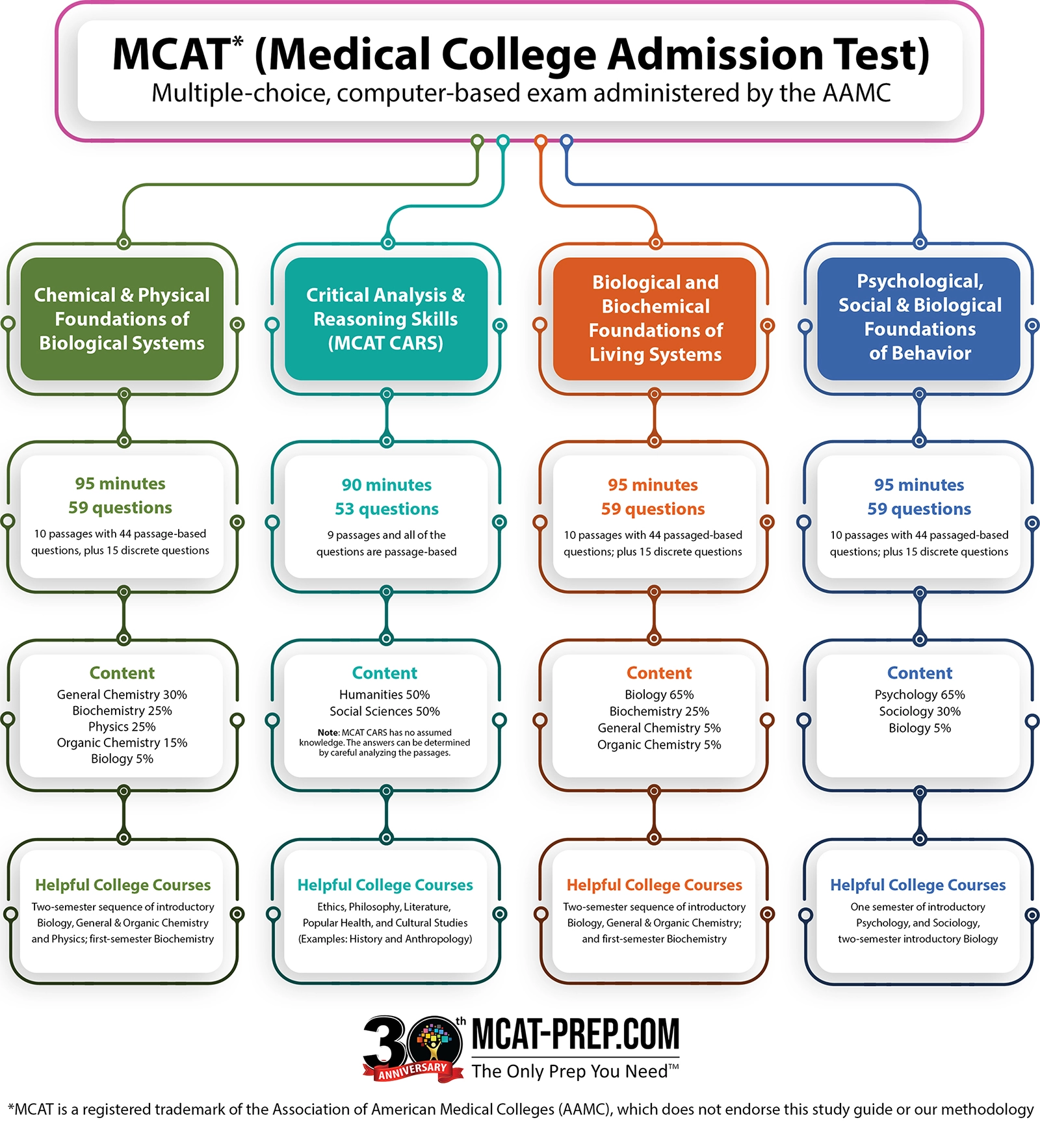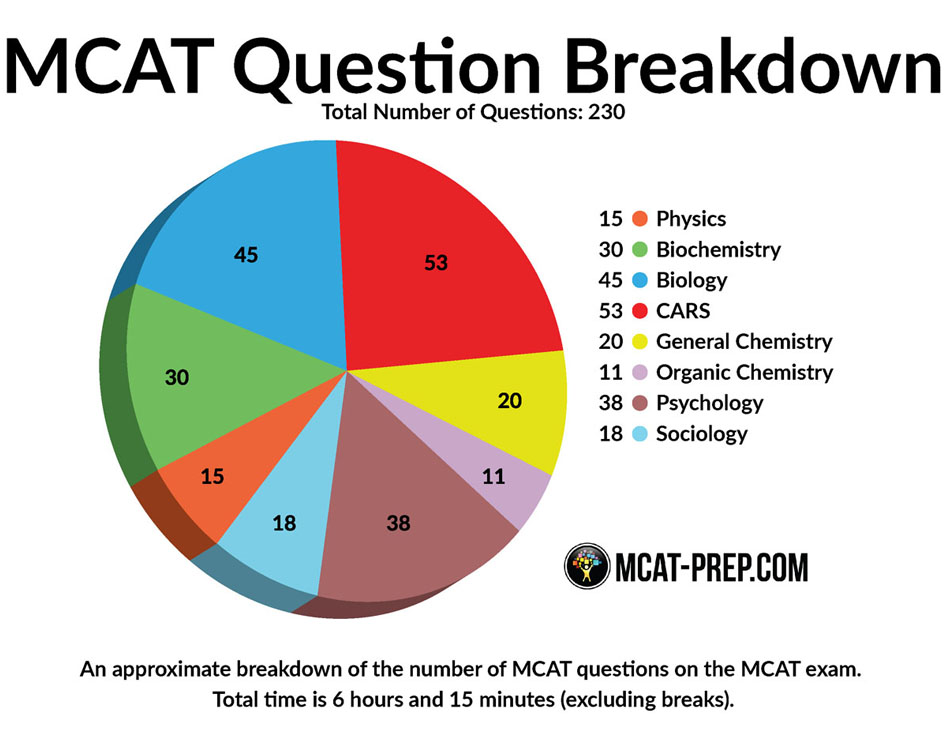Test day certification |
- |
4 minutes |
A reminder of your obligation as MCAT examinee |
Tutorial (optional) |
- |
10 minutes |
Login to the AAMC MCAT hub, go to the free resources section and access the "Practice with MCAT Exam Features" tutorial |
Chemical and Physical Foundations of Biological Systems (AKA: Chem/Phys)
[Note: many students are surprised to see that about 1/3 of this section is BCM + BIO]
BCM 25% • BIO 5% • CHM 30% • ORG 15% • PHY 25% |
59 questions: 10 passages with 44 passage-based questions, plus 15 discrete questions |
95 minutes |
These questions are focused on mechanisms operating in the human body as well as basic chemical and physical principles which are the foundations of mechanisms operating in the human body. Includes basic research methods and statistics. |
Break (optional)* |
- |
10 minutes |
You can't leave the testing center. You will have access to only food, water, and medicine(s). You can't access electronic devices and study materials. Plan your break wisely. Also, track your break time with the watch at the testing center's waiting area. |
Critical Analysis and Reasoning Skills (AKA:CARS) |
53 questions: 9 passages and all of the questions are
passage-based |
90 minutes |
These questions cover principles in the humanities and social sciences as well as focus on critically evaluating information given in a passage. There is no specific assumed knowledge. |
Mid-Exam Break (optional)* |
- |
30 minutes |
You can't leave the testing center. You will have access to only food, water, and medicines. You can't access electronic devices and study materials. Plan and spend your break wisely. Also, track your break time with the watch at the testing center's waiting area. |
Biological and Biochemical Foundations of Living Systems (AKA:Bio/Bcm)
[Some heavy research BCM/BIO passages mixed with 'old school' BIO passages]
BCM 25% • BIO 65% • CHM 5% • ORG 5% |
59 questions: 10 passages with 44 passage-based questions, plus 15 discrete questions |
95 minutes |
These questions are focused on how cells and organs in living organisms act independently and interdependently, as well as processes at different levels of biological organization within a living system. Includes basic research and statistics skills. |
Break (optional)* |
- |
10 minutes |
You can't leave the testing center. You will have access to only food, water, and medicines. You can't access electronic devices and study materials. Plan and spend your break wisely. Also, track your break time with the watch at the testing center's waiting area. |
Psychological, Social, and Biological Foundations of Behavior (AKA:Psych/Soc)
[These MCQs are often knowledge-based and so do not tend to use the same advanced reasoning skills as avg MCQs from the other 3 sections.]
PSY 65% • SOC 30% • BIO 5% |
59 questions: 10 passages with 44 passage-based questions, plus 15 discrete questions |
95 minutes |
These questions are focused on how people think and feel about themselves and others, how socio-cultural differences influence well-being as well as relationships between social stratification, access to resources, and well-being. Includes basic research methods and statistics. |
Void Question |
- |
3 minutes |
After you finish the exam, you will see a screen wherein you will choose between submitting or voiding your MCAT score. |
Satisfaction Survey (optional) |
12 |
5 minutes |
The survey helps AAMC to better understand the students' experiences and career plans. |
Total Content Time |
- |
6 hours, 15 minutes |
- |
Total "Seated" Time* |
- |
Approx. 7 hours, 33 minutes |
- |





